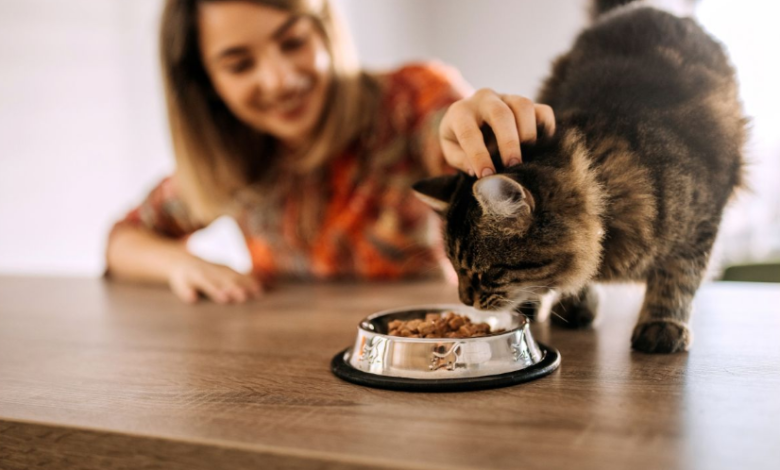Enhancing Cat Health With Proper Nutrition

Understanding Feline Nutritional Needs
Cats are obligate carnivores, meaning their bodies require specific nutrients only found in animal-based diets. While high-quality cat food provides most essential nutrients, certain cats may benefit from additional nutritional support. This is where cat supplements can play an important role in maintaining overall health.
Why Supplementation May Be Necessary
Not all cats have the same nutritional requirements. Factors such as age, activity level, health conditions, and dietary preferences can affect nutrient intake. Supplementing with vitamins, minerals, or herbal compounds can help bridge nutritional gaps and ensure cats remain energetic, healthy, and free from deficiencies.
Common Reasons for Using Supplements
- Supporting joint and mobility health
- Enhancing immune system function
- Promoting healthy skin and coat
- Assisting digestive efficiency
- Supporting heart, kidney, or liver function
Using supplements tailored to your cat’s needs ensures targeted support for long-term well-being.
Types of Cat Supplements
There are various types of supplements available for cats, each serving a specific purpose:
Vitamin and Mineral Supplements
Essential vitamins like A, D, E, and B-complex, along with minerals such as calcium and phosphorus, support bone health, vision, and metabolic function. Deficiencies in these nutrients can lead to poor growth, weak immunity, and other health problems.
Joint Support Supplements
Glucosamine, chondroitin, and omega-3 fatty acids help maintain healthy joints, reduce inflammation, and improve mobility in aging or overweight cats. These supplements are particularly beneficial for senior cats prone to arthritis.
Skin and Coat Supplements
A balanced blend of fatty acids, including omega-3 and omega-6, promotes a shiny coat and reduces dry skin, itching, or irritation. Cats with sensitive skin or dietary imbalances may show noticeable improvement with regular supplementation.
Digestive Health Supplements
Probiotics, prebiotics, and digestive cat supplements enzymes can improve gut health, enhance nutrient absorption, and reduce gastrointestinal issues such as constipation, diarrhea, or bloating.
Herbal and Natural Supplements
Certain herbs and botanicals, when safely formulated, may help support overall health, boost immunity, and relieve mild stress or anxiety. Examples include chamomile, licorice root, and turmeric in cat-safe formulations.
Choosing Safe and Effective Products
When selecting cat supplements, safety and quality are critical:
- Ensure products are specifically formulated for feline consumption
- Check ingredient labels for potential toxins or allergens
- Prefer products with third-party testing or veterinary endorsement
- Avoid giving human supplements, as some can be toxic to cats
Consulting a Veterinarian
Before introducing supplements, consult a veterinarian to evaluate your cat’s specific needs. A professional can recommend appropriate types, dosages, and duration to ensure the supplement is both safe and effective.
How to Administer Supplements
Administering supplements can sometimes be challenging due to a cat’s selective eating habits. Techniques to improve compliance include:
- Mixing powders or capsules with regular food
- Using liquid formulations via dropper or syringe (if recommended by a vet)
- Hiding tablets in treats specifically designed for cats
Consistency is key. Administering supplements at the same time daily increases the likelihood of acceptance and effectiveness.
See also: Discover Your Perfect Dentist in Sea Isle City for a Healthier Smile
Monitoring Your Cat’s Response
After introducing supplements, monitor for changes in behavior, appearance, and overall health. Look for:
- Improved energy levels
- Shiny coat and reduced skin irritation
- Better digestion and stool quality
- Increased mobility or reduced joint stiffness
Any adverse reaction, such as vomiting, diarrhea, or changes in appetite, should prompt a consultation with a veterinarian.
Integrating Supplements Into a Balanced Diet
Supplements should complement a nutritionally complete diet, not replace it. High-quality cat food remains the foundation for feline health. Combining proper diet with carefully chosen cat supplements provides comprehensive nutritional support.
Recommended Practices
- Rotate or adjust supplements based on seasonal or life-stage needs
- Keep a record of all supplements administered for consistency
- Store supplements in a cool, dry place to maintain potency
- Gradually introduce new supplements to monitor tolerance
Benefits of Long-Term Supplementation
With proper guidance, cat supplements can deliver significant long-term benefits:
- Enhanced immune defense and disease prevention
- Healthier coat, skin, and nails
- Support for aging cats to maintain mobility and activity
- Improved digestive efficiency and nutrient absorption
- Overall increase in vitality and quality of life
Future Trends in Cat Nutrition
The pet industry continues to innovate with specialized supplements, including formulations targeting specific conditions, life stages, and breeds. Holistic and natural ingredients are increasingly favored by cat owners seeking safe, preventive care.
Conclusion
Supplementation, when done responsibly, can be a powerful tool to enhance a cat’s health. Selecting high-quality cat supplements tailored to individual needs, combined with a balanced diet and regular veterinary care, ensures that your feline companion enjoys a longer, healthier, and more active life. Proper nutritional support strengthens immunity, maintains mobility, and contributes to overall well-being.




